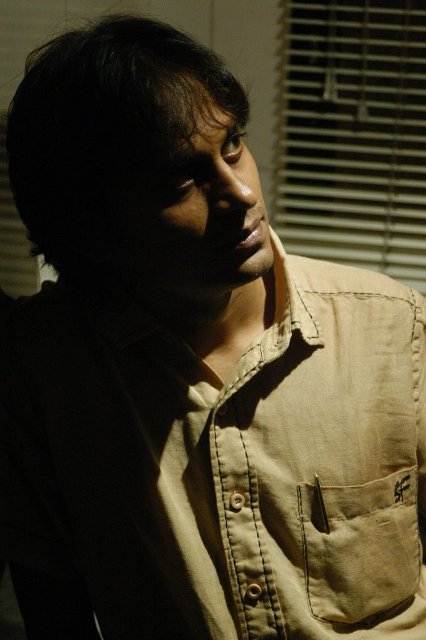Pahargunj: Storehouse of stories
The English had imported the suffix "Gunj" from Egypt's "Geniza", meaning a storehouse, and strewn the suffix liberally all over India. By that, Pahargunj would mean storehouse on a mountain. It is, rather, a mountain of a storehouse. In the crammed lanes you get everything from Hare Krishna tees, to Che Guevara bags, to weed, to leather boots, to trinkets, to books and music from across the globe, to 'Hotel Decent'. And you can also buy whips of leather for your sadistic boss and your masochistic self!
Pahargunj is also a geniza of stories. They are unending and fascinating, like the one we did yesterday about a Hollander having married a beggar in Pahargunj. The buildings are so clustered that it’s tough to discern one from the other. But one building is very striking- the one that houses Camran Lodge. It’s built in marble, and has fine embellishments to it. The building pulled us in. Faiz Farooqui, who runs the lodge, told us about the history of the place, which is very much a micro picture of what was happening in 1947. It was intended to be a mosque, and was being built by a tribe of Muslim stone carvers who stayed in the then predominantly Muslim Pahargunj. Partition happened, the Muslims of the area had to pack up, and the Hindus from Pakistan came in. The building was occupied by the refugees then, and later “anti-social” elements occupied it till the late 1970s till Fakhruddin Ali Ahmad’s helped in having it vacated. The top floor is now used as a mosque, the outer cubicles as shops, and the rest as the lodge. It was meant to be a “Muslim musafirkhana” specifically as approved by the Waqf board, but of late the lodge runners have started letting it out to everyone, “minus the criminals,” Farooqui tells. The rates are dirt cheap for staying in the lodge, starting from hundred rupees.
We walk on, and see the demography of the area changed in a peculiar manner. The bustling streets have always been known for a cosmopolitan crowd, but fifty per cent of the foreign populace is now Israeli, we are told by a bookseller, whose shelves are stacked with books in Hebrew. As you walk further into the market, you’ll notice shops with Hebrew signboards. McLeod Gunj is known for Israeli visitors, but even there you won’t find Israeli signboards. You’ll see STD booths specifically shouting “Call Israel at 7 rupees a minute”. We walked into a leather shop with a Hebrew signboard. It’s run by Kashmiris who came here 20 years ago, and they have “good relations with the Israelis,” the owner says.
When enough of dekko has been done, and you're in a "thought for food" mode, you'd discover that food festivals are not the only place that offer world cuisine. As we said, Pahargunj has it all. You get Israeli, Russian, Lebanese, Itlaian, Spanish menus all rolled into one, in most restaurants. We hopped into Sam's Café, a rooftop restaurant. A rooftop with flowers and green grass in Pahargunj is the rarest sight. They have French, American, Isreali and other breakfasts; but we started with Milky Potato soup, (must be a Russian one), which was warm, creamy, yum.
Ajay Guest House is a stone's throw away, and besides the German bakery that they have, there is a cool leather goods shop, and a painter who does trance paintings-smoking Rishis, purple witch and all that including many reproductions of Dali. The bakery also offers a multinational variety with pancakes, muselis, lasagne, pizzas and more. And there are a hundred bars with beer almost a marked price. The next time you’re planning an adventurous evening, you know where to go.
Wednesday, May 30, 2007
Subscribe to:
Post Comments (Atom)

No comments:
Post a Comment